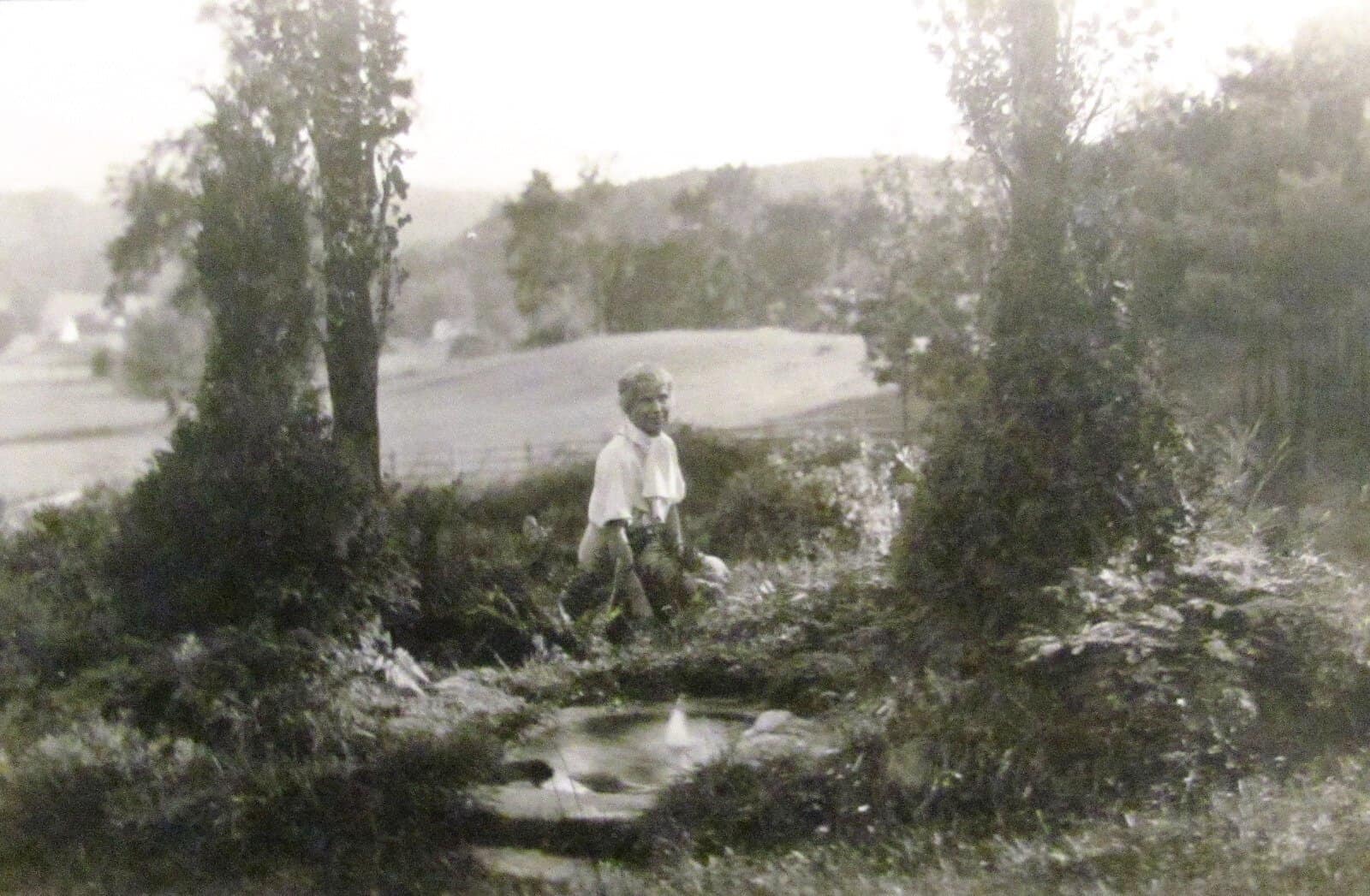
From Dorothy Canfield Fisher:
Henry LaBatt’s Stroke
Arlington, [Vt.] of the twentieth century has not at all lost its habit of turning small everyday chance happenings into a good-humored laugh, which passes around the community and ends by leaving in our minds – well what? Perhaps each one ends by giving us a little more accurate idea of how life affects human beings.
Only last summer Henry LaBatt (he and his wife, both now elderly members of my own age group, live in what was the old Lawyer Harmon Canfield house) walked up to the barber shop between the two villages to get his hair cut. He’s not very well, and it seemed like quite a distance; but it was a pleasant summer day and the errand not a disagreeable one. Having your hair cut by the barber is apt to be a sociable event with a chance to talk over neighborhood news with other men waiting for their turn in the barber’s chair. Laying down his hat and cane and taking off his glasses, Henry sat down for a pleasant chat with some neighbors. Before his turn for a haircut came, he had time to hear the latest news and to talk some politics. After his hair was cut, he started home, in very good spirits.
But when he reached the house after this he was in a dreadful state. Wavering on unsteady feet, stepping high, leaning hard on his cane, he barely managed to get up on the porch, staggered into the living room, took off his hat and glasses, let his cane drop and sank down on the couch, white-faced and dizzy. “Something awful’s happened to me,” he said solemnly to his wife. “I don’t know what! But something terrible. My mind’s not right. The ground has been coming right up at me all the way home. And now I feel sick—seasick, you know. Do you suppose I’ve had a stroke?”
His wife was alarmed. She hovered over him anxiously, took his pulse which was normal, took his temperature which was normal. She sat down perplexed, beside the couch. “Perhaps you got too tired,” she said. “It’s quite a walk from here up the hill to the barber’s. Do you feel anything queer anywhere?”
“No,” Henry said. Now that he was lying down, the unearthly feelings of total uncertainly of everything – the strange symptoms – dizziness, seasickness – they all seemed to be fading away.
Much cheered, his wife said, “Maybe you’ll be all right after you’ve had a rest.”
So he lay there quietly. He really felt much better. They were both relieved, thinking that the attack, whatever it had been, might have passed away. He reached again for his cane and glasses and stood up on his feet, but cried out at once that it was worse than ever. He staggered wildly, almost lost his balance. Now the floor rose up in waves, and the walls of the room spun around. He reeled so that his wife caught at him and steadied him, as he fell, so that it was on the sofa that he once more collapsed. She was really alarmed now and said anxiously, “Look, Henry, this is something very serious. Take my arm. We’ll go right across the street and ask Dr. Russell.”
But as, arm in arm, they started toward the door, they saw a little boy was standing there. He had been knocking, but in their agitation they hadn’t heard him. He held up his hand with something in it. “Here are your glasses, Mr. LaBatt,” he said. “The barber said you took somebody else’s by mistake when you left the shop.”
Not a year has gone by since that absurd little episode, but already it has shown itself no mere dry pebble, no mere comic anecdote. Like others which we repeat laughingly, it has turned out something living, a root which has begun to sprout meanings beyond the incident itself. It is one of our footnotes on life. Just the other day I heard somebody say impatiently, “Seems to me that the children nowadays aren’t anything like as bright as they used to be when I was young. Nor as reliable! Makes me sick to see how foolishly they carry on.”
A man who was with him said neutrally, “Maybe you’ve got on those glasses Henry LaBatt wore away from the barber shop.”
This week’s old saying: “My future’s so bright I gotta wear shades.”